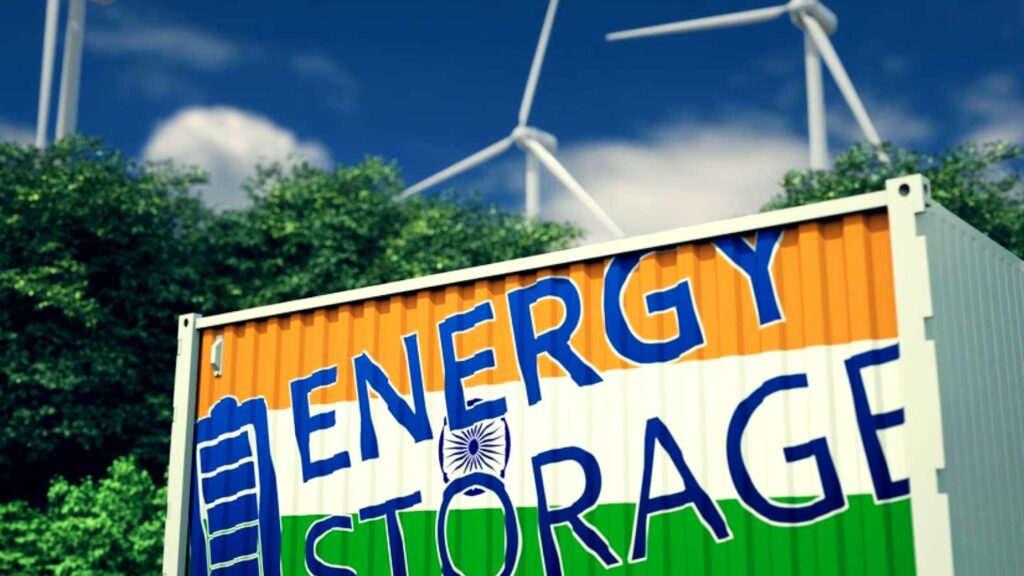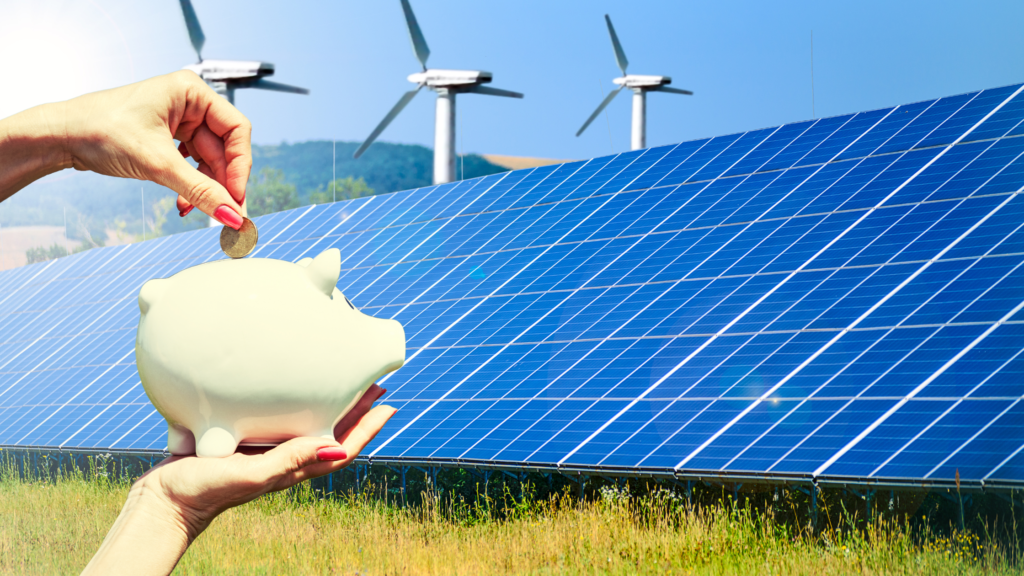As the world grapples with the challenges of climate change and the increasing energy demand, the need for sustainable energy solutions has become more pressing than ever. In this context, NTPC Green Energy Limited (NGEL), a subsidiary of India’s largest power utility, NTPC Limited, emerges as a trailblazer in steering India towards a green and sustainable energy future. Established to spearhead NTPC’s renewable energy (RE) initiatives, NGEL is setting benchmarks in clean energy production, innovative technology adoption, and environmental stewardship.
NTPC Green Energy Limited: An Overview
In order to further solidify its dedication to renewable energy and achieve its lofty sustainability objectives, NTPC Limited, a name synonymous with India’s energy industry, founded NGEL in 2022. NGEL is focused on growing NTPC’s renewable energy portfolio, which includes battery energy storage systems (BESS), green hydrogen production, and solar, wind, and hybrid projects.
The establishment of NGEL is in line with NTPC’s goal of having 60 GW of renewable energy by 2032. Additionally, this program helps India meet its larger objective under the Paris Agreement to reach 500 GW of non-fossil fuel capacity by 2030.
Key Renewable Energy Projects
NGEL is leading a number of initiatives that demonstrate its dedication to the green energy revolution. Here are a few of the noteworthy projects:
- Solar Power Initiatives
The core of NGEL’s effort for renewable energy is its solar installations. It has used India’s plentiful sunshine to create renewable energy by building huge solar parks in several regions. Among the notable projects are:
- Ananthapuram Ultra Mega Solar Park: The 1000 MW Ananthapuram Ultra Mega Solar Park in Andhra Pradesh makes a substantial contribution to the reduction of carbon emissions.
- Nokh Solar Power Plant: One of India’s biggest solar power plants, the Nokh Solar Power Plant is located in Rajasthan and uses solar radiation to power the desert.
- Wind Energy Ventures
In order to produce wind energy, NGEL has made use of wind-rich areas such as Tamil Nadu, Gujarat, and Maharashtra. In order to overcome the intermittency issues with renewable energy sources, NGEL guarantees a more reliable power supply by integrating wind and solar power through hybrid projects.
- Green Hydrogen Projects
India’s green hydrogen economy is being led by NGEL. Utilizing renewable energy, hydrogen is a zero-emission fuel that finds use in manufacturing, transportation, and energy storage. Key initiatives include:
- Creating green hydrogen production facilities in partnership with international businesses is one of the main aims.
- Establishing pilot programs to generate hydrogen for use in industry and transportation.
- Battery Energy Storage Systems (BESS)
NGEL is making investments in cutting-edge battery energy storage technology to tackle the issue of intermittent renewable energy. In order to maintain grid stability, these systems store extra energy produced during periods of peak output and release it when demand is high.
- Floating Solar Power Projects
When it comes to installing solar panels on bodies of water, NTPC has been a pioneer in floating solar technology. These initiatives aid water-scarce areas by lowering water evaporation and conserving land. Installations at NTPC’s power plants in Kerala and Andhra Pradesh are among the floating solar projects that NGEL has undertaken.
Green Energy and Economic Growth
The projects of NGEL are not only focused on producing renewable energy; they also aim to stimulate economic expansion and job creation. By making investments in infrastructure for renewable energy, NGEL boosts local economies by fostering skill development, job creation, and increased energy security.
Electrification and Development in Rural Areas
Rural communities where these facilities are situated are frequently developed as part of renewable energy initiatives. Local communities gain from the construction of roads, schools, and medical facilities brought about by solar and wind farms.
Boosting India’s Green Economy
NGEL draws investment to India’s renewable energy sector as it increases its green energy footprint. Partnerships with foreign parties strengthen India’s standing as a leader in renewable energy worldwide.
Technological Innovations Driving NGEL’s Success
A key component of NGEL’s strategy is innovation. By implementing cutting-edge technologies, NGEL minimizes its impact on the environment, lowers expenses, and increases productivity.
Smart Grids
India’s energy infrastructure is being modernized by NGEL through the integration of smart grid technologies. These networks seamlessly incorporate renewable energy, balance supply and demand, and increase dependability by using real-time data.
Machine learning (ML) and artificial intelligence (AI):
These are being used to forecast demand patterns, optimize energy production, and perform predictive maintenance on renewable energy infrastructure.
Blockchain for Energy Trading
In order to promote decentralized energy markets, NTPC is investigating blockchain technology to enable peer-to-peer energy trading between producers and consumers of renewable energy.
Environmental and Social Responsibility
The design of NGEL’s renewable energy projects places a high priority on social and environmental responsibility. Important projects consist of:
Biodiversity Conservation
Projects utilizing renewable energy are meticulously designed to reduce their negative effects on nearby ecosystems. To preserve biodiversity in project regions, NGEL collaborates with environmental specialists.
Community Involvement:
Community Engagement NGEL engages with local communities to ensure that their concerns are addressed and that they benefit from renewable energy projects. Programs for education, healthcare, and vocational training are examples of initiatives.
Reductions in Carbon Emissions
Greenhouse gas emissions are greatly decreased by NGEL’s substitution of renewable energy for fossil fuels. India’s Nationally Determined Contributions (NDCs) under the Paris Agreement are influenced by these cuts.
Challenges and the Way Forward
Although NGEL’s accomplishments are admirable, India’s renewable energy industry confronts a number of obstacles:
Land Acquisition
Large land areas are frequently needed for renewable energy projects, which can cause conflicts and delays. This problem is being addressed in part by creative solutions like rooftop installations and floating solar.
Grid Integration
Major infrastructure and management system modifications are necessary to integrate variable renewable energy into the current grid.
Financial Constraints
Due to their high initial costs, renewable energy projects require government assistance and advantageous financing arrangements in order to be feasible.
Policy and Regulatory Support
To draw in private investment and guarantee the sector’s long-term growth, policies and incentives must be consistent.
The Future of NTPC Green Energy
In the future, NGEL is expected to be a key player in changing the energy scene in India. By increasing its capacity for renewable energy, funding R&D, and cultivating international collaborations, NGEL hopes to:
- Reach NTPC’s goal of 60 GW of renewable energy capacity by 2032.
- Take the lead in the green hydrogen revolution in India.
- Encourage the use of decentralized renewable energy sources, such as microgrids and rooftop solar.
Conclusion
A prime example of India’s dedication to a sustainable future is NTPC Green Energy Limited. In addition to addressing the issues of climate change, NGEL promotes economic growth and energy security by utilizing renewable energy. NGEL is leading the way in the global transition to a cleaner and greener future, shining a light for others to follow.



The blog provides valuable insights into NTPC Green Energy’s contribution to India’s renewable energy sector. The content is informative and well-structured, but adding more statistics or real-world impact data could make it even more compelling. Also, including visuals like graphs or project images would enhance reader engagement. A stronger call to action encouraging readers to explore green energy options or support NTPC’s initiatives could increase interaction. Overall, it’s a great read with room for more depth and engagement!